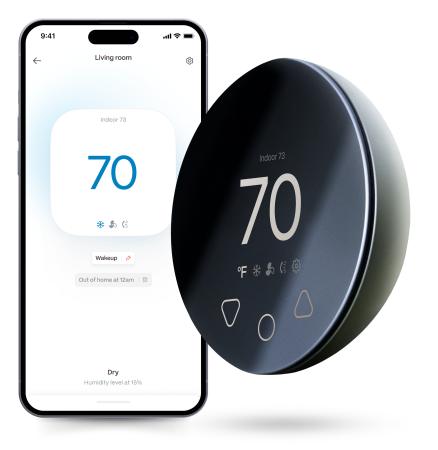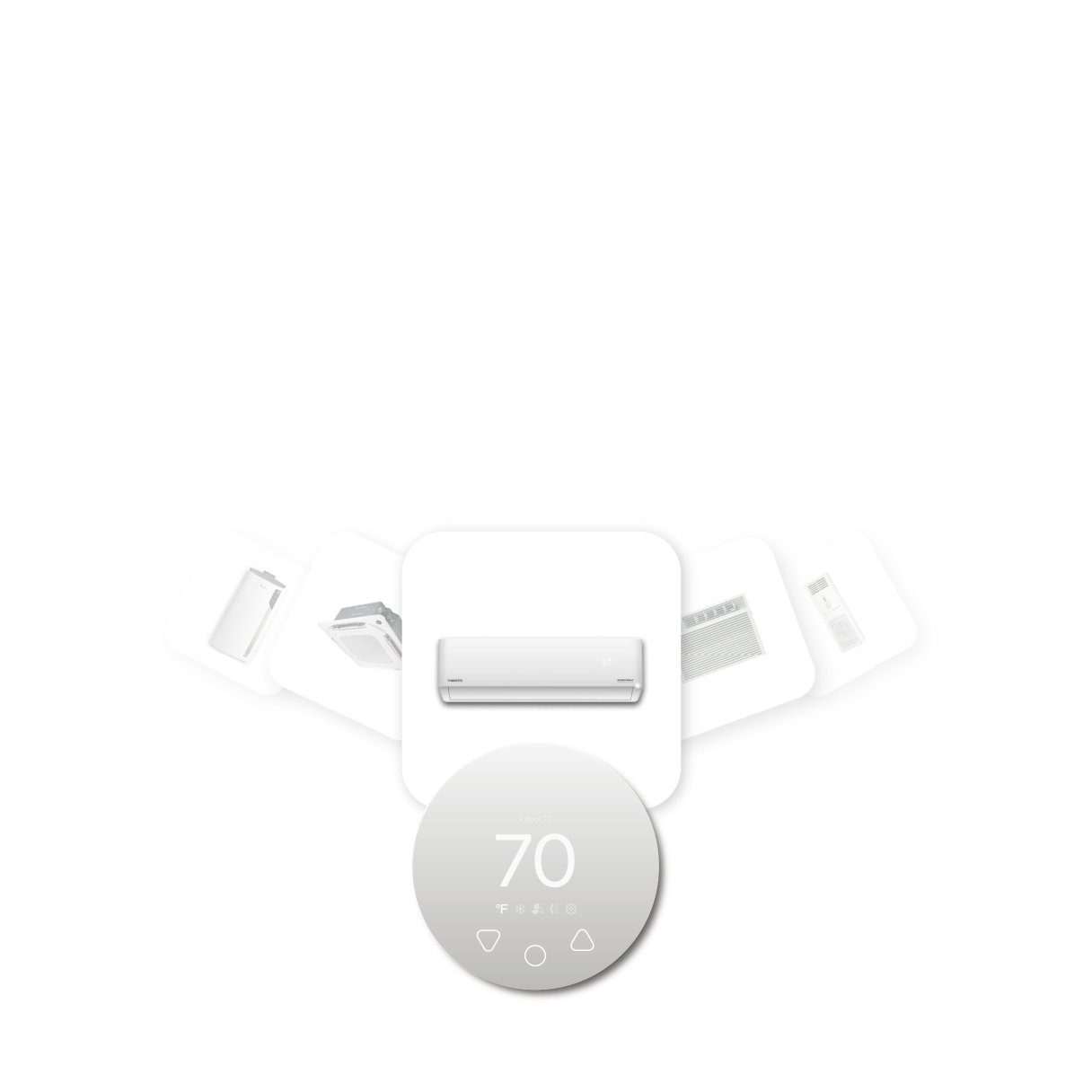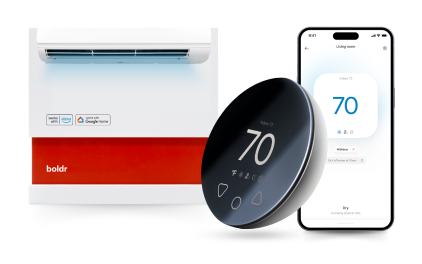
The hottest part of the day doesn’t always coincide with the sun being at its highest point in the sky. While solar noon(around 12 pm) delivers the most direct sunlight, the peak temperature typically occurs hours later due to the Earth's surface and atmosphere continuing to absorb and retain heat.
This phenomenon, known as thermal inertia, means that the hottest time of the day generally falls between 2 pm and 4 pm, though regional differences can affect this timing. In this article, we will discover what the hottest time of the day is based on where you live and how a smart thermostat, like Klima, can beat the heat during these times.
The Science Behind Daily Temperature Changes and Heat Peaks
As the sun rises, its energy warms the Earth’s surface, with the temperature increasing as the sun climbs higher in the sky. At solar noon, the sun is delivering maximum energy.
However, the Earth’s surface and air continue to absorb and store heat even after this point. This retained heat keeps warming the environment, delaying the peak temperature to later in the afternoon.
The timing of the hottest hours depends on regional factors, such as where you live, the climate, and surface characteristics.
Regional Variations in Peak Temperatures
1. In tropical regions near the equator
Countries such as Brazil and Indonesia, the hottest time of the day is typically earlier, between 1 pm and 3 pm, due to the intense and nearly vertical sunlight that rapidly heats the ground.
2. In desert areas
Countries such as Saudi Arabia and Australia’s outback, where dry air and minimal vegetation allow for rapid surface heating, temperatures peak slightly later, usually between 2 pm and 4 pm.
3. Temperate regions
Countries such as Germany or parts of the United States like New York, experience peak heat between 3 pm and 5 pm. Here, the moderate climate and more gradual heat absorption delay the hottest hours.
4. In high-latitude locations
Such as Sweden or Canada, the longest summer days cause the peak heat to occur as late as 4 pm or 5 pm, as extended daylight hours allow for prolonged warming.

Managing Peak Heat Temperatures with Klima Smart Thermostat
As the day heats up, managing indoor temperatures efficiently while also not having to sacrifice energy savings is important for comfort and cost savings.
Klima - Smart Home Thermostat for Mini-splits, Air Conditioners and Heatpumps
Compatible with all brands of ACs and Mini-Splits Automate Climate Management Control remotely Reduce Energy Consumption Monitor bills in realtime
Try Now
The Klima Smart Thermostat offers smart energy features to help keep your home cool and energy-efficient during the hottest hours of the day, with savings of up to 30%

How Klima’s Energy Saving Smart Features Simplifies Cooling During Peak Heat
1. Remote Access Anytime, Anywhere
Klima enables you to control your ductless A/C system from your phone, allowing you to control your ductless A/Cfrom anywhere.
2. Location-Sensing Technology
Klima’s location-sensing smart feature adjusts your ductless A/C’s temperature based on whether you’re in the house, allowing you to save money when you are not home.
3. Real-Time Cost Monitoring
Monitor your mini-split’s energy usage and costs in real time with Klima’s Cost Monitoring feature, allowing you to save up to 30% on mini-split expenses during the warmest part of the day.

4. Smart Scheduling for Targeted Comfort
Program your ductless HVAC system to cool specific rooms with Klima’s smart schedules, ensuring comfort in frequently used spaces without wasting energy.
5. Smart Zoning for Personalized Cooling
Adjust your mini-split’s temperature room by room, optimizing cooling in key areas that are frequently used with Klima’s Smart Zoning feature.

6. Open Window Detection
In regions like Indonesia, where natural ventilation can sometimes suffice, Klima detects open windows and automatically turns off your mini-split to save energy.
7. Mini-Split Health Monitoring
Klima helps ensure your system runs optimally, alerting you to maintenance needs through the Boldr Energy app.

Klima’s Compatibility and Smart Home Integration
Klima’s smart features and smart home integration with platforms like Google Home and Amazon Alexa allow for voice control and efficient indoor climate management.
Klima is compatible with over 10,000 ductless A/C models and works with any ductless A/C that has a remote control with a display.

Conclusion
The hottest time of the day varies worldwide due to geographic and climatic differences, from early afternoons in tropical countries like Brazil to late afternoons in temperate zones like Germany and high-latitude areas like Sweden. Understanding these variations can help you better prepare for the day’s peak heat.
With the Klima Smart Thermostat, you can easily manage indoor temperatures, save energy using Klima’s smart features, and stay comfortable during these peak heat times without sacrificing your savings, no matter where you live.



















